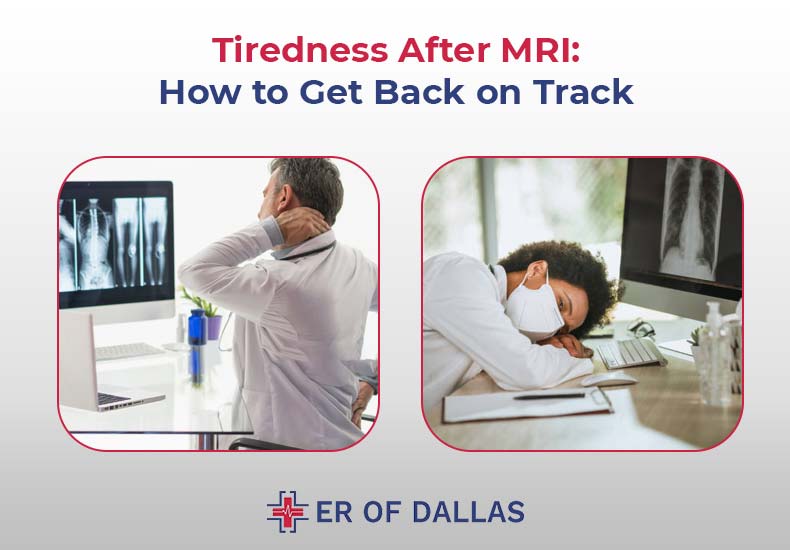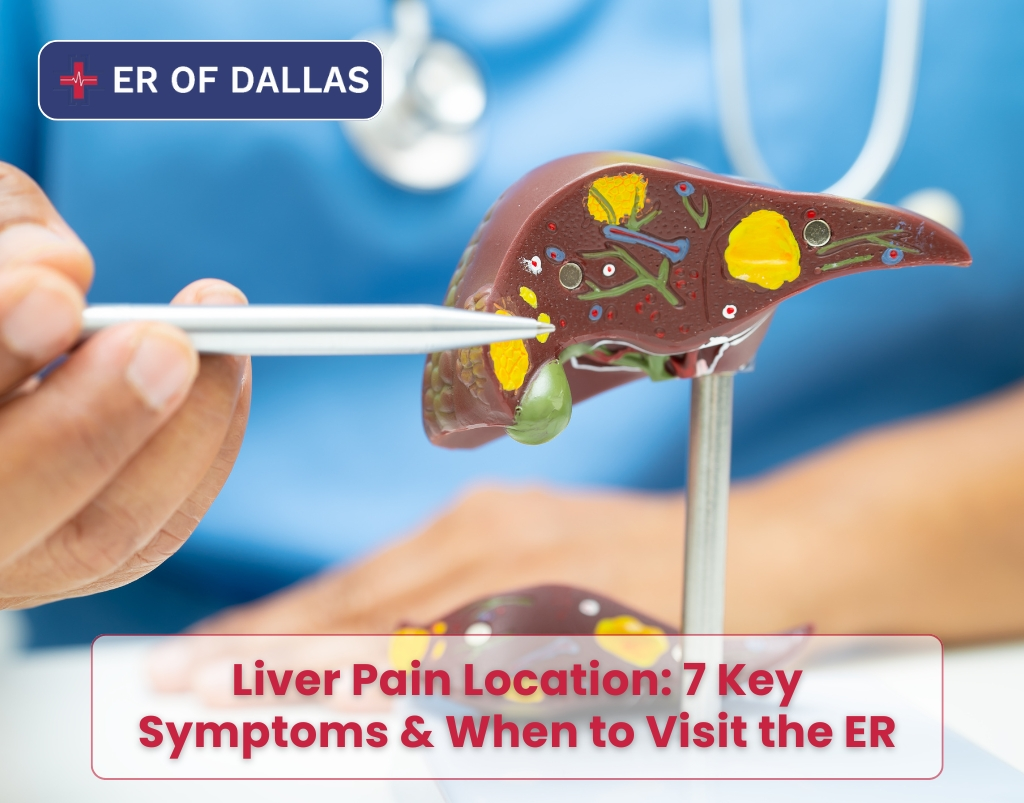Tiredness After MRI is common, especially after receiving contrast dye. Other potential side effects include:
- Nausea
- Vomiting
- Flu-like symptoms
Contrast dye is a liquid substance used in MRI and angiography examinations. It appears bright white on the images, allowing doctors to distinguish it from surrounding tissues.
Contrast dye acts as a ‘changing agent’ within the body during an MRI. It alters the relaxation time of the nuclei of atoms within the body, resulting in a change in the appearance of the images.
What Is an MRI?
Magnetic Resonance Imaging (MRI) uses powerful magnetic fields and radio waves to create detailed images of your body’s internal structures. Unlike X-rays or CT scans, MRIs excel at visualizing soft tissues, making them essential for diagnosing conditions affecting organs, blood vessels, and more.
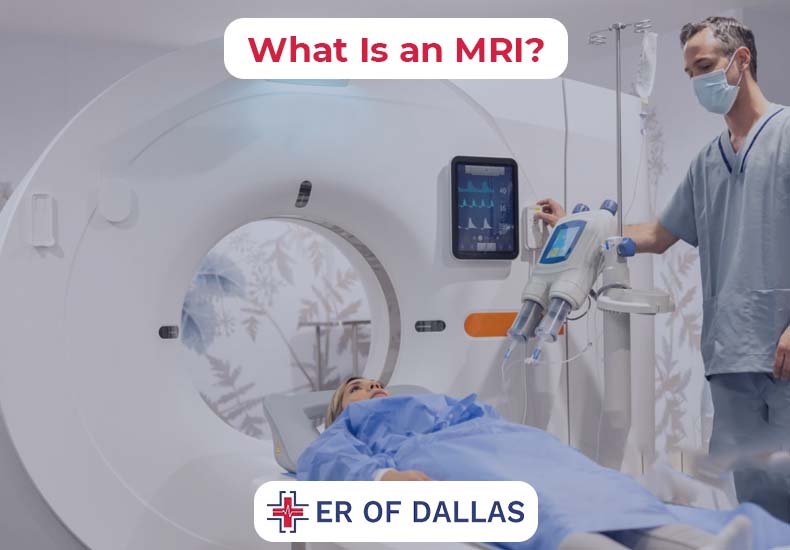
When a standard MRI isn’t enough, doctors may order a contrast-enhanced MRI. This involves injecting a gadolinium-based contrast agent (GBCA) into your bloodstream. GBCAs appear bright white on MRI images, helping radiologists:
- Highlight blood vessels: Critical for diagnosing vascular issues like blockages or aneurysms.
- Spot inflammation or infection: Areas with increased blood flow stand out.
- Detect internal bleeding: Blood accumulation becomes visible.
MRI with and without contrast is available at Dallas Imaging’s ER. Find out more about this technology below.
Is An MRI With Necessary For Everyone?
Not at all. Your doctor decides based on your condition. Contrast is typically used for:
- Evaluating tumors or inflammation.
- Assessing blood vessel health.
- Diagnosing complex conditions like multiple sclerosis.
For routine scans, like back pain or sports injuries, a non-contrast MRI often suffices. At facilities like ER of Dallas, both options are available, tailored to your needs.
Fatigue After MRI With Contrast: 5 Proven Reasons
Tiredness After MRI, particularly with contrast, is common and can be due to your body, mind, or the test itself. Here’s what current research suggests:
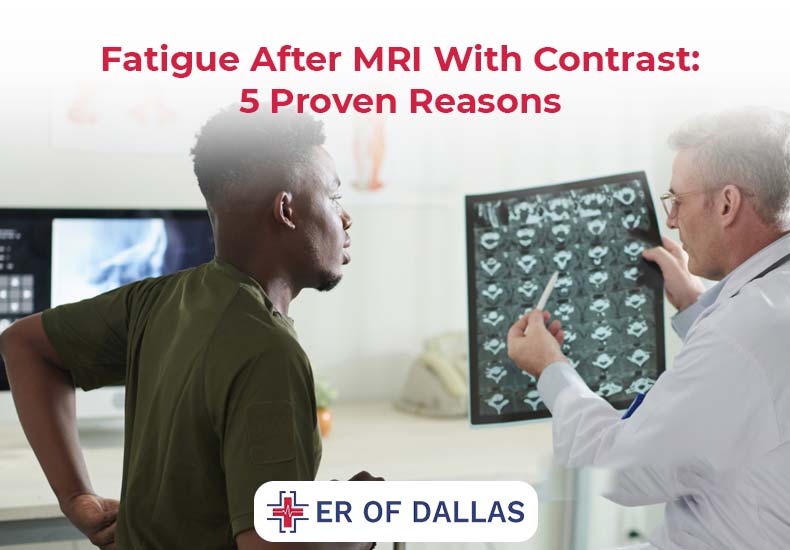
Long-Term Fasting Before MRI Scan
Many MRI protocols require fasting for 4-6 hours beforehand, particularly if contrast is used. This can leave you hungry, dehydrated, and low on energy. Post-scan, eating a light meal can help you recover faster.
It is typical of every pathological exam to fast for several hours to ensure that the test is accurate to an extreme degree. There is nothing wrong with you! A health assessment can provide you with an accurate assessment of your current health if you listen to someone who recommends it.
Furthermore, your stomach must likely have been grumbling after such a long and demanding exam. A feeling of strangeness and anxiety is always accompanied by hunger!
A Long Wait For Pee Release
You’re often asked to drink water before an MRI to stay hydrated, but you can’t leave the scanner mid-procedure. Holding your bladder for 15-90 minutes can cause discomfort or even mild abdominal pain, contributing to post-MRI exhaustion.
A Sedative After Contrast Dyeing
If you’re claustrophobic, sedatives may be used during the MRI. Combined with gadolinium dye, this can lead to side effects like dizziness, chills, or nausea
You may need to prepare to overcome the negative effects shortly since this strangeness is similar to a red alarm. Do you think you’re ready?
90-minute Enclosed Tube Staycation
MRI scans can last anywhere from 15 to 90 minutes, depending on the area being imaged. Lying still in a narrow, noisy tube can trigger stress or anxiety, even if you’re not claustrophobic.
Maintain a constant state of awareness, remain motionless in one position, and pay attention to cues to change or relocate! Yes, it is tiring! There may be feelings of stress and anxiety during this period and long after the exam has ended trepidation and anticipation, and dread of being trapped.
A Loud Noise From The MRI Machine
MRI machines produce banging sounds—sometimes reaching 120-130 decibels—due to vibrating coils. This noise, akin to a jackhammer, can cause temporary irritation or headaches, leaving you drained.
You feel strange whenever you hear those awful creaking noises as if you won’t ever be able to forget them!
Is it Possible to Feel Fatigued After an MRI With Contrast?
The most common question patients ask is this one. Contrast-enhanced CT scans may make you feel lightheaded. Sleepiness and disorientation have occasionally been reported by patients. Weariness does not appear to be associated with contrast dye in medical studies. There are very few documented adverse effects associated with any of the aforementioned dyes.
These negative consequences may be caused by their underlying medical conditions. Some publications describe hyperthyroidism, color sensitivity reactions, and nephropathy caused by contrast dye allergy.
Those with myasthenia gravis are also at a significant risk of disease exacerbation based on the clinical evidence. Additionally, patients may experience anaphylactic shock. There is a possibility that this will occur, but it is not likely.
An infusion of dye in the rectal or oral cavity may cause this reaction. The premedication treatment will be determined by your physician based on your physical condition. Antibiotics and other prescriptions should be stopped 48 hours in advance.
Preparation, MRI, and Post-MRI
The preparation of an MRI may be relatively straightforward. Before your session, you can consume food, liquids, and medications as usual. If you have any jewelry or body piercings, remove them before your scan. You should wear comfortable clothing that fits loosely, ideally without metal fasteners like buttons, zippers, and underwire bras. You should wear comfortable clothing that fits loosely, ideally without metal fasteners like buttons, zippers, and underwire bras. MRI machines can heat tiny metal fragments, which may cause harm if you wear cosmetics or deodorant before your test.
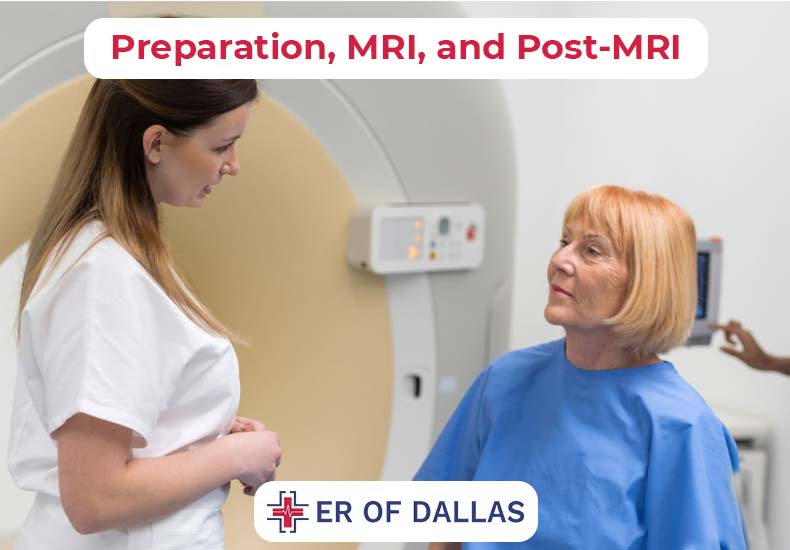
Please leave your purse and any valuables in a locked locker before arriving at your appointment, including your wallet, cell phone, keys, etc. A large magnet on the MRI equipment can erase credit cards, so it’s crucial to leave them behind. As part of the MRI machine, a metal bed slides into a donut-shaped magnetic tube. The aperture of this tube is about 60 centimeters. This size might surprise you, but the radio frequency must be able to generate magnetic waves that will generate images of your interior with a small tube.
We offer alternative devices that are more spacious and comfortable if you are concerned about the tube’s size. Furthermore, we have MRI machines with wide-bore openings, which are 10 cm wider than standard MRI openings. MRI machines are open, so only the area being scanned is enclosed.
After the MRI Test
It’s just a matter of getting back into your clothes, getting your belongings, and continuing your day as usual. As a result of the test, you are not limited in what you can accomplish. Once your scan is complete, you may depart. If you were given a sedative, you would need a driver to take you home. An MRI scan has no negative side effects. The intense anxiety associated with MRI scans can result in fatigue for some people afterward. MRI appointments, travel to appointments, and waiting for results can cause fatigue. If you experience nausea or itching at the injection site after the contrast injection, please notify your doctor.
How Long Does An MRI Take?
Scan duration varies:
- Full-body MRI: 60-90 minutes.
- Brain or head MRI: 30-60 minutes.
- Spine or back MRI: 30-120 minutes.
Add prep time (changing, medical history review), and your appointment might take 1.5-2 hours. Emerging technologies may speed up MRI procedures. ER of Dallas is delighted to remain at the forefront of emerging technology as we continue to develop these new MRI machines.
MRI Contrast Side Effects
While GBCAs are generally safe, side effects can occur. The MRI contrast side effects are:

- Mild reactions: Fatigue, nausea, headache (5-10% of patients).
- Rare risks: Allergic reactions or gadolinium retention in the brain (less than 0.1%).
- Special cases: Patients with kidney issues or myasthenia gravis may face higher risks, like nephropathy or disease worsening.
Most side effects resolve within hours, but if you experience persistent symptoms (e.g., itching at the injection site), consult your doctor.
What Causes Dizziness After MRIs?
It is common for MRIs to cause dizziness as an adverse reaction. Several factors might contribute to the condition, including the scan’s powerful magnetic field, as already indicated. Those with vertigo diagnoses experience the same effect when exposed to magnets. A patient’s dizziness worsens if he or she gets up from the table too soon. It is also necessary for the brain to get used to being outside of the machine once again. There is no long-term impact on the dizziness since it is transient. The dizziness may leave some individuals fatigued, but nothing that can’t be remedied by a good night’s sleep.
It Is Possible For an MRI Scan to Cause a Headache
Following an MRI scan, some individuals may experience headaches. There are certain elements involved, even though the exact reason is unknown.
Patients who experience headaches after undergoing the scan may be more affected by their environment than by their treatment. A moving table keeps the patient motionless as you are brought into the MRI scanner. As a result of its close-in design and compact design, the machine could make one feel cramped. Following the start of the scan, you should remain as still as possible. Consequently, worrying about a potential medical condition and enduring any discomfort you may feel are surefire ways to end up with a headache.
You may also feel different after the scan depending on how long it took. Scan times can vary from 15 minutes to 90 minutes depending on the body part being scanned and the intended use of the scan. After spending a lot of time lying on the back, a patient may experience a headache when they first stand up.
Final Thoughts
Tiredness after an MRI with contrast can result from fasting, noise, or the procedure itself. While most side effects are mild and temporary, understanding the process can ease your mind. With advancements, MRI technology continues to evolve, offering faster, quieter scans and safer contrast agents.
Ready for your next MRI? You can find Dallas Emergency Room in the comfort of your own home. MRI scans with contrast can be scheduled at any nearby center.
FAQs
1. Why do I feel tired after an MRI with contrast?
Fatigue can stem from fasting, contrast dye, sedatives, or the stress of lying still in a noisy, enclosed machine for up to 90 minutes.
2. Are MRI contrast side effects common?
Mild effects like tiredness or nausea occur in 5-10% of cases. Serious reactions are rare (less than 1%).
3. How long does gadolinium stay in my body?
It’s typically excreted via urine within 24 hours, though trace amounts may linger in rare cases.
4. Can I avoid contrast dye for my MRI?
Yes, if your doctor deems it unnecessary. Non-contrast MRIs work well for many conditions.
5. What should I do if I feel dizzy after an MRI?
Rest, hydrate, and avoid standing up too quickly. If dizziness persists, contact your doctor.

